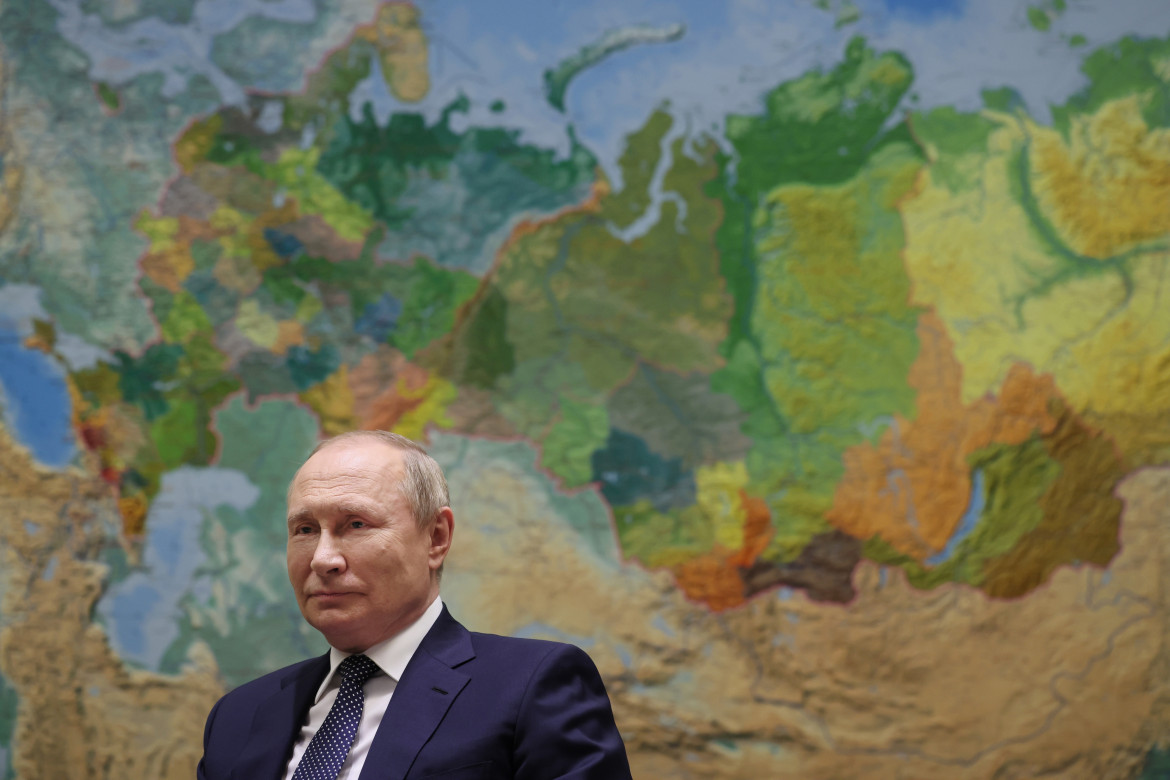Commentary
The Kremlin and Washington are converging on one thing: dissolving Europe
The U.S. would want the European Union to “depend” more and more on NATO; for Putin, it is an obstacle to his plans to rebuild a new conservative and orthodox Russian identity.

The dramatic progress of the war and the behavior of the various actors in the field has led many to speak of the “heterogenesis of ends,” with Russia converging towards U.S. objectives, albeit in a catastrophic dynamic of action and reaction. One example is given as paradigmatic: the Russian obsession with not having NATO on its borders, which has now resulted in its almost complete encirclement by the latter. However, it’s not clear that this is entirely the case; on the contrary, one can see a convergence of intent, not coincidental, that pushes towards the dissolution of Europe as an autonomous political entity.
The U.S. would want the European Union to “depend” more and more on NATO; for Putin, it is an obstacle to his plans to rebuild a new conservative and orthodox Russian identity. It is no coincidence that one of the philosophers of reference for the latter’s project is Kostantin Nikolaevych Leontyev, who called Europe, especially in the form of a federation of states, one of the worst threats to Russian identity, going so far as to write an essay in 1875 entitled “The Average European as a Weapon of Universal Destruction.” All this in sharp contrast to Victor Hugo, who, in his famous 1849 speech at the International Peace Conference in Paris, called for a United States of Europe as an instrument of universal peace, uttering for the first time the well-known expression: “Europe from the Atlantic to the Urals.”
For its part, the U.S. has always thought of Europe, particularly the version born with the Treaties of Rome, as a creature of the Marshall Plan which should be bound to the U.S. with the Atlantic Pact; accordingly, any attempt to give it an autonomous and democratic federal structure, such as the draft European Constitution drawn up by Altiero Spinelli in 1984, has met with opposition from the successive governments that have allowed only the kinds of progress compatible with the construction of the internal market, with obvious imbalances due to the absence of a common economic, social and fiscal policy.
Today, the fate of Europe is again at stake, and the political signals are not reassuring about its future, which can only be imagined in the context of the new equilibria that this war will establish. There is much talk of a common defense policy and much mention of the “Strategic Compass” approved before the current war, which provides for one paltry battalion of only 5,000 personnel. However, after the latest events, it is impossible, illusory and dangerous to assume there can be any common defense policy with the current intergovernmental structure of the Union and without a shared foreign policy. In short, it would have to be a solution that could go beyond both European leaders’ pilgrimages to Kiev – more for their own image than to offer any useful proposals for resolving the conflict – and the various phone calls to the Kremlin, none of which are able to represent a common position.
Emmanuel Macron, in his May 9 speech, seemed to intend to outline a place for everyone in the future European space, but without offering a solution for how to reform this space. From what we know from statements and writings by various European politicians, the issue of the requirement of a unanimous vote in the Council is being seen as the main obstacle to be overcome – which is not easy, because any amendment of the Treaties requires a unanimous vote of the 27 as well as parliamentary ratifications. Even if the unanimity obstacle is overcome, the prospect would be nothing more than the rule of an elite made up by the governments of the largest member countries. This would be a bizarre autocratic outcome for a Europe that views Russian autocracy with contempt – even if it was an autocracy ruled not by one man, but by a group of governments that are increasingly weaker, and also less democratic for that very reason.
What would offer a solution, on the other hand, is overcoming the current intergovernmental system of the Union, which excludes, in whole or in part, the parliaments from decision-making. However, one cannot currently see any reform impulses in this direction among the governments. The intergovernmental structure can only be superseded by a federal-type one. Clearly, looking at things realistically, this cannot be a prospect that will be accepted by all members of the Union. Thus, the central question is about how the will to cede sovereignty could prevail in individual countries, guaranteed by a Constitution that would enshrine at the European level those principles of democracy that, for example, are present in the Italian Constitution. The prospect could be that of a Federation (composed of only some of the current member countries) that is a part of a larger European Union, which would increasingly have the features of a confederation.
As for the enlargement process to include new countries, a choice would have to be made between adhering to more stringent criteria, i.e. those of the Federation, or joining the wider Union. In the latter case, however, the principles relating to the rule of law, fundamental rights and freedoms and democracy which are already enshrined in the EU Treaties (although certainly with room for improvement) would have to be strictly adhered to.
Originally published at https://ilmanifesto.it/intenti-convergenti-contro-leuropa-soggetto-autonomo on 2022-06-05
